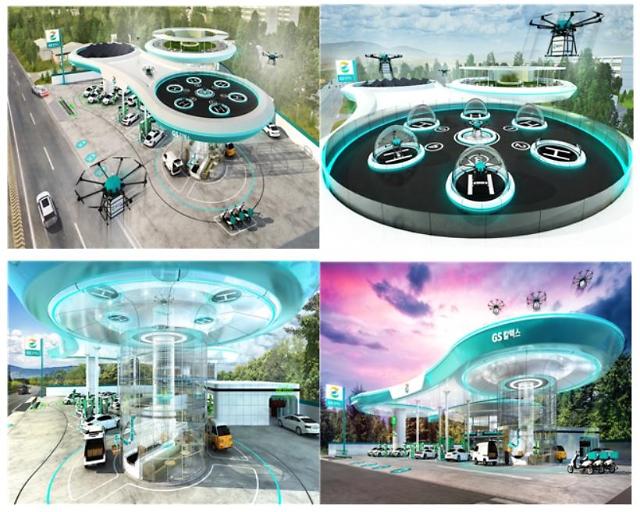
GS Caltex, a major South Korean refiner, demonstrated the use of delivery drones to carry lunchboxes and drinks from a gas station that served as the last-mile logistics hub in a government-led project to utilise unmanned aerial vehicles (UAV) in the delivery of parcels and daily necessities to remote areas with limited accessibility, reports ajudaily.com.
In a demonstration this week, watched by government officials, researchers and GS Caltex officials, two drones with a maximum payload of about 5 kg took off at a GS Caltex gas station in the southern resort island of Jeju. One carried lunch boxes to students at an elementary school about 750 meters away, while the second drone flew to a nearby guest house around 1.3 kms away. Each delivery run took between four and five minutes.
“This demonstration is a test of a high-reliability drone delivery service platform with a 98 percent success rate of delivery mission,” the Ministry of Trade, Industry and Energy said in a statement. The Ministry called for the early commercialisation of drone delivery services in response to the new trend of increasing demands for non-face-to-face services amid the coronavirus pandemic.
The demonstration was part of a USD29.2 million project to develop technology and logistics infrastructure so that drones can be adopted by services to deliver parcels. The Ministry said it would expand the drone delivery system to urban and suburban areas by easing regulations. Currently, the law strictly forbids the operation of such craft in populated areas for safety and security.
“If drone delivery services are popularized, everyday necessities and safety products can be easily delivered to hard-to-reach places such as islands and mountainous areas,” a Trade Ministry official said.
Via the demonstration, GS Caltex revealed its future plan to utilise a nationwide network of gas stations as the hub of a total logistics system including drone delivery, car-sharing, parcel delivery services by vehicles and hydrogen fuel and electricity charging services for eco-friendly cars. “Gas stations not only have enough spaces to store goods but they are easy for drones to enter,” continued the official.
In April, the refiner used a drone to collect samples of oil from an oil tanker after the container had harboured in a dock to unload cargo. Normally, inspectors using small boats climb onto huge tankers to collect samples before docking. The oil sample-collecting drone will be commercialised this year.
For more information

